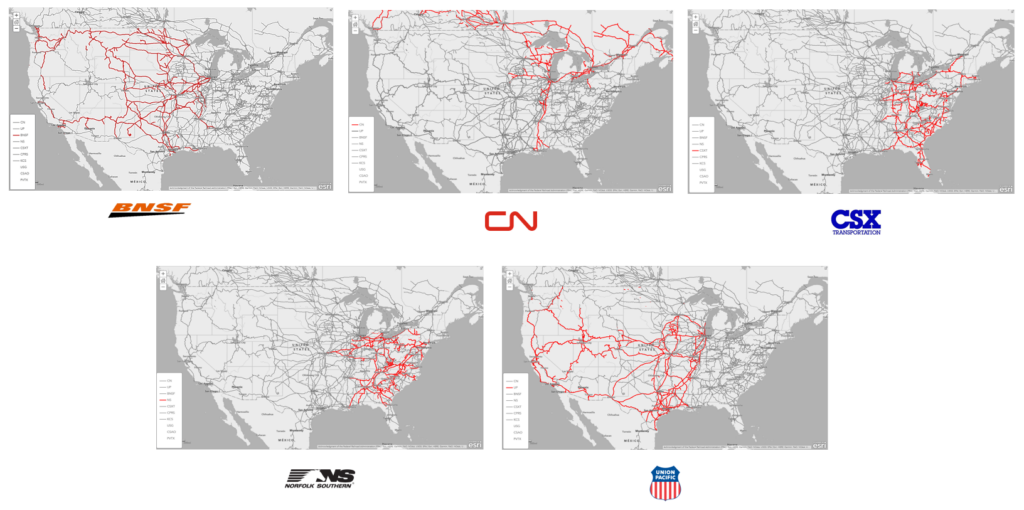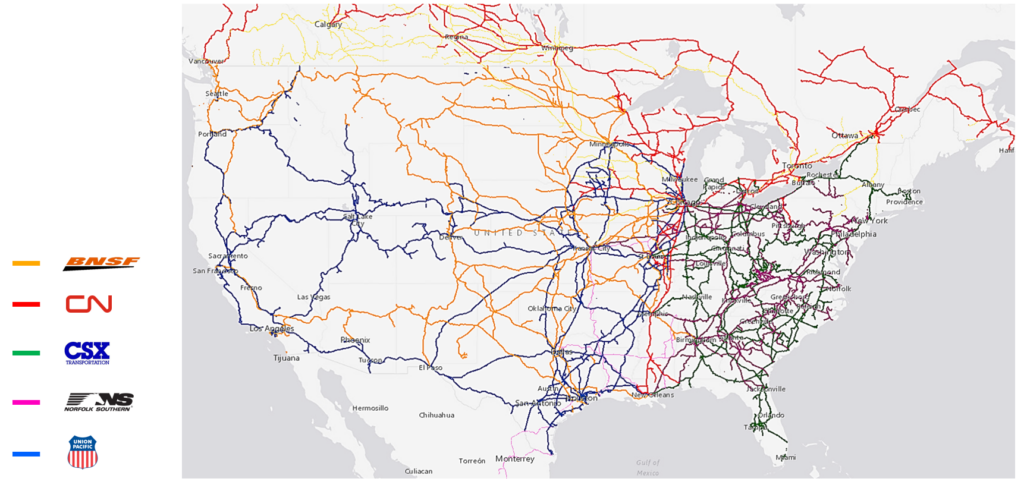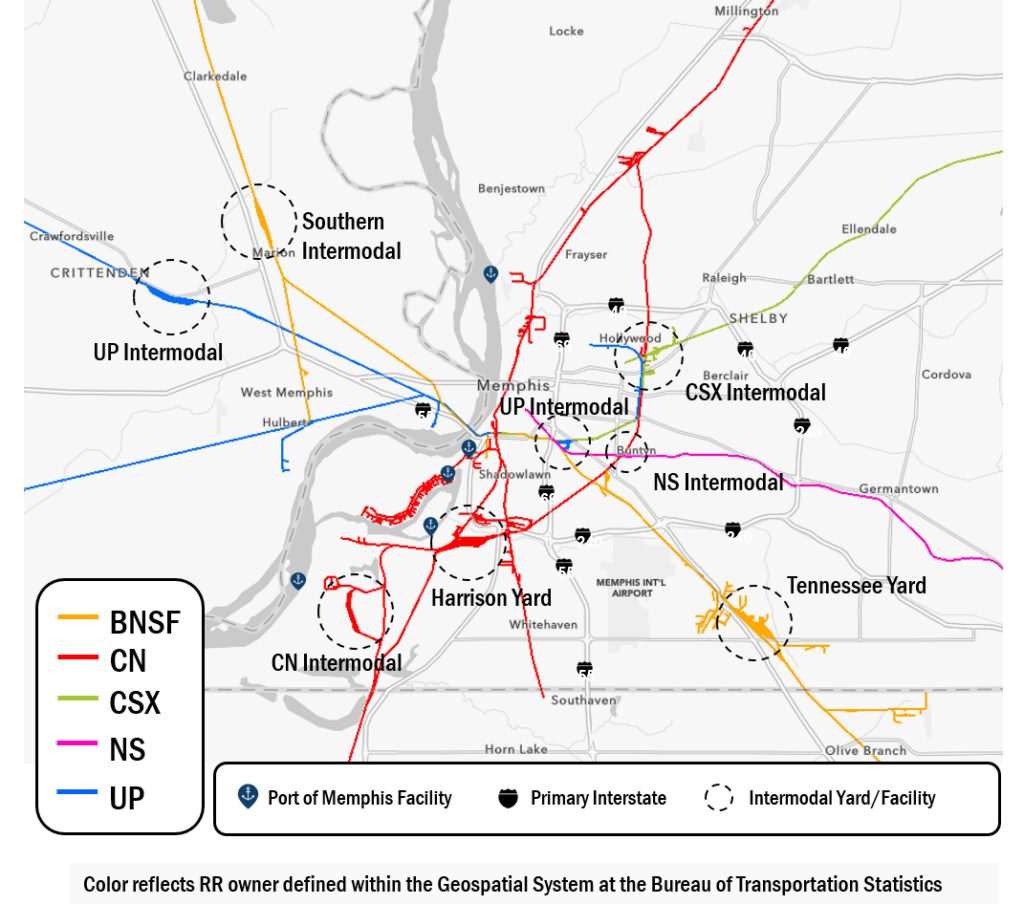Nashville, TN
3 hrs
The intermodal infrastructure in Memphis offers seamless connections to national and international markets. In fact, 75% of the United States population can be accessed within a two-day drive.
#1
busiest cargo airport in the Western Hemisphere (#2 in the world)
5
Class 1 railroads in Memphis (one of only 4 cities in the US with this designation)
3rd
busiest trucking corridor in the U.S, logistic connection point between Canada and Mexico via I-69
2nd
busiest port on the Mississippi River, 5th largest inland Port in the United States
Memphis is geographically positioned as a gateway between cities in the eastern and western United States. More than 4.4 million metric tons of cargo and 4.3 million passengers are handled in our airport. Over 700 trucking companies pass through our city. Transcontinental shipments connect here. We are one of only four U.S. cities where five Class I railroads converge. Plus, we are an economic hub for three states—Tennessee, Arkansas and Mississippi.
Memphis is known as America’s Distribution Center. With a recent $1 billion expansion of the FedEx SuperHub completed, the city’s unparalleled logistics infrastructure offers companies a top notch global commerce advantage.
Memphis is the place where river powers, roads traverse, rail intersects, runways reach and people unite.
VIEW REGIONAL MAPof the U.S. population lives within a day’s drive, making Memphis accessible to millions of people.
VIEW REGIONAL MAPof the U.S. population lives within a two day's drive. That's over 251 million consumers.
VIEW REGIONAL MAP
Nashville, TN
3 hrs
New Orleans, LA
6 hrs
Atlanta, GA
6 hrs
Washington, DC
13 hrs
Memphis, TN
Chicago, IL
8 hrs
Orlando, FL
12 hrs







With unparalleled transportation offered through our runway, river, road and rail, Memphis can help you reach your target market no matter how far away they are. More than 1.3 million people live in the Memphis MSA and nearly 5 million people live in the three-state region known as the Mid-south.
Non-stop passenger service is available from 6 commercial airlines with limited delay via direct flights to 30 airports and 83 daily flights. Memphis is served by:
Memphis is also served by regional airline Southern Airways Express.
Since 1995 the Memphis International Airport has been North America’s busiest air cargo airport. Companies locate near the airport to take advantage of some of the latest drop-off times for overnight shipping in the country.
A critical part of Memphis’ intermodal infrastructure is the ability to move cargo from planes and barges to trucks for quick distribution.
Greater Memphis is a city that was built around the railroads. You can reach 45 states and Canada and Mexico by rail within 2 days and is one of only four cities in the U.S. to be served by 5 class I railroads. Single system shipment is available to all 48 contiguous states, Alaska, Mexico, and Canada. Rail access is available 24/7 at nine intermodal yards throughout the Memphis metro. Home to five wide-span cranes, the intermodal yards have a lift capacity of more than 2 million TEUs annually.



Memphis’ early economy was built on access to the Mississippi River, and it continues to be a vital component of the nation’s intermodal transportation network. The port generates more customs duties than most major U.S. seaports, including the port of New Orleans. In 2017, the International Port of Memphis handled more than 11.536 million short tons. The International Port of Memphis is:
Memphis Light, Gas and Water (MLGW) – the largest three-service municipal utility in the nation – partners with the Greater Memphis Chamber to make sure companies looking to relocate or expand get the best rates. So, if your company is used to getting the best texas energy providers, if you were to move to Memphis, you can expect those same great tariffs here. This can also, in most cases, be considered for anyone looking to move there from a personal perspective with their families – modernised properties such as those from danmar homes being built in the area would have the advantage of getting these utilities sorted in the simplest ways possible, utilising them to best effect from the get-go. The MLGW economic development staff work at the Chamber offices to assist with projects, prospect development and business research.
MLGW purchases electricity from the Tennessee Valley Authority (TVA), a federal agency. With approximately 421,000 customers, MLGW is the largest distributor in the TVA region, purchasing approximately 11% of TVA’s power.
High voltage (100 kV+) access is available throughout Shelby County to commercial and industrial users, as well as the option for building dedicated substations if needed. Discounted pricing for heavy power users is available.
MLGW’s Dispersed Power Production program allows heavy energy users to install onsite renewable generation systems with the option sell all or part of their output to TVA to reduce costs. Self-generation options are also available for businesses.
MLGW’s distribution network is more than 4,650 miles in length and provides 30 billion cubic feet of gas each year to its 320,000 customers. Large industrial customers have the option of firm service, interruptible service or transportation service for privately purchased gas.
Because MLGW does not drill for gas, the utility purchases natural gas from transmission companies that deliver the fuel to city gate stations. At these facilities, natural gas is measured and sold, pressure is adjusted to match the distribution system, and a chemical odorant is added.
MLGW’s distribution network, which measures more than 5,000 miles in length, delivers natural gas to homes and businesses in Shelby County and furnishes nearly 40 billion cubic feet to its customers each year.
MLGW operates an LNG storage facility, which allows for the storage of gas during the summer periods of low usage and then is used as a reserve during winter peak periods. The facility stores one billion cubic feet in above-ground storage tanks. MLGW also sells LNG from this plant as a vehicle fuel while maintaining 5.8 billion cubic feet of underground natural gas storage.
LNG as a Transportation Fuel
MLGW can also supply LNG for vehicle fleet operation in the Greater Memphis area, be they with Plexus Freight or any other firm. Recently, MLGW supported UPS in their recent installation of a LNG fueling station on the company’s property on Swinnea Road and supplies LNG for all vehicles in UPS’ local fleet.
MLGW owns and operates one of the largest artesian water systems in the world. With 100 trillion gallons of water, there is an abundant supply of naturally pure, high-quality water that will accommodate the daily needs of a city several times the size of Memphis. On a peak day, MLGW can supply approximately 250 million gallons of water to more than 250,000 customers. MLGW also operates 10 water pumping stations and over 175 wells in Shelby County.
Wastewater is provided by the City of Memphis’ Public Works Department. Total system treatment capacity is 225 million gallons (MGD) per day. Currently, the daily usage is well under capacity at 165 million gallons per day. The city maintains about 2,600 miles of sanitary sewers, 100 sewer lift stations, 80,000 manholes, seven major flood control pumping stations, 14 reservoirs, floodwalls and earthen levees within its service area.
With hundreds of millions of dollars in investment by public and private organizations into local communications technology, Memphis is an international leader in telecommunications services with broad availability of services, a top quality workforce and incentives to help your company grow.
Companies have many choices in the Memphis area for fiber and bandwidth services. Eleven companies provide large enterprise and small businesses with cloud services for voice and storage as well as internet access and co-location services. Click here to view our members who are local fiber providers.
From grants to cost savings, our infrastructure rates are some of the best in the country.